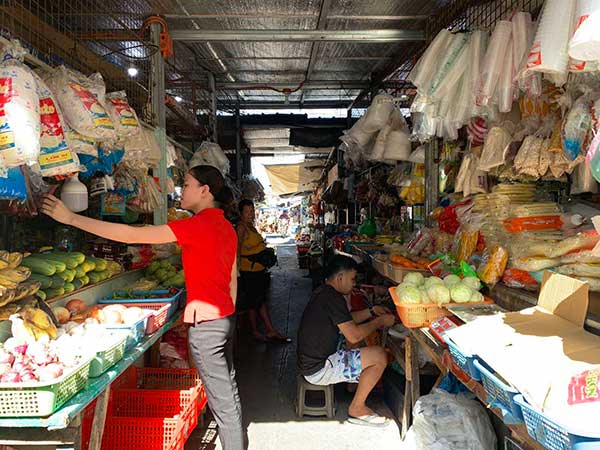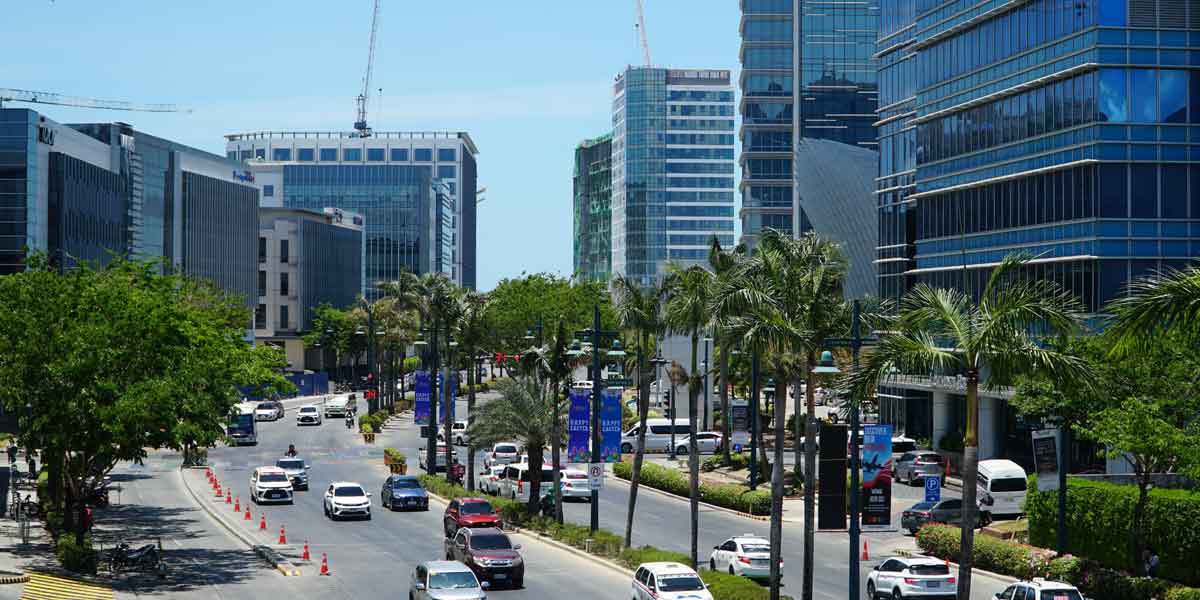
By Rjay Zuriaga Castor
Two years after being relocated from the La Paz Public Market, sari-sari store owner Shiella Gullo continues to struggle to keep her business afloat. With the return to the renovated market delayed for another year, Gullo fears her business may not survive.
“I was really hoping that we would be returning because honestly, we are struggling to make a living in our relocated area,” she told Daily Guardian.
For 15 years, her small store has been the primary source of income for her family, supporting their daily needs and her child’s education.
Gullo is among the hundreds of market vendors in three district markets in the city — Jaro, La Paz, and Arevalo — that have been displaced due to its ongoing renovation.
Earlier this May, Mayor Jerry Treñas, speaking to the market vendors, announced the reopening of the three district markets in December this year.
But the hopes of the vendors of returning to a renovated marketplace shattered, when the City Engineer’s Office announced this week that the reopening will take place in late 2025 or first quarter of 2026.
Archictect Regina Gregorios explained that reopening the market and transferring the vendors to the markets soon while some of the works are ongoing could pose safety risks and even delay the project’s overall completion.
DECLINING SALES
Gullo’s stall is situated near a busy road—an area she says is unsuitable for business. She shared that in her current location, vehicles would regularly pass by, reducing the instances of customers buying.
“Unlike other stores, I am occupying a place that is not strategically located and not helpful to my business,” she said.
Gullo, “disappointed” by the delay in their transfer, said everyday is a struggle to make ends meet.
“Our earnings here are really low. It seems that we can’t even buy a viand for a meal,” she said.
Before the renovation, Gullo’s business thrived, with regular customers—especially on weekends—who appreciated the market’s accessible parking facilities. Now, with no parking spaces in the relocation site, bulk buyers have stopped patronizing her store.
The relocation has forced Gullo to let go of two employees, leaving her to manage the store alone.
Gullo’s current earnings are a fraction of what she used to make before the relocation. She now earns an average of just P1,250 to P2,000 daily, compared to P5,000 to P8,000 before the renovation.
“Our sales are very poor. Some days, we can barely afford to buy food. We are deeply in debt, and many of my regular customers have moved to nearby commercial centers like Plazuela Wet Market,” she shared.
Gullo said the rising cost of goods has further eroded her profits.
“Vegetables are so expensive now. We can’t raise our prices because it will drive customers away. We barely make a profit, and most days, we’re at a loss,” Gullo said.
Gullo also faces additional costs, such as stall rentals at P800 each and a P20 daily fee for placing extra products outside her designated space.
Mercy Gabiota, a sari-sari store owner and mother of four, commutes daily from Guimaras to Iloilo City to run her business.
Gabiota’s stall, inherited from her aunt who left due to low profitability, now earns only a quarter of what it used to.
Before the relocation, they generated daily earnings of P10,000 to P20,000, resulting in a net income of around P3,000. Now, her total earnings barely reach P4,000, leaving her with a net income of just P500.
Supporting two children in college, one in high school, and another in grade school, Gabiota still has to set aside P200 daily just for their allowances.
Unlike before, Gabiota shared that their previous location was spacious and strategically positioned, making it easily recognizable to customers. This time, spaces are already limited.
“We’re only lucky on Saturdays and Sundays when we manage to earn a bit more. We are just rolling our earnings. We just have to survive the day,” she said.
Adding to her challenges are monthly rental fees of P955 and an additional P10 daily for occupying extra space. On top of this, she still has to pay for electricity bills and quarterly withholding tax remittances.
“All my jewelry, which was very dear to me, has already been pawned or sold just to keep the business afloat,” she lamented.
“I hope the process will be expedited, and I also hope there will be financial assistance provided to help us with our capital so we don’t completely fall apart,” she appealed.
Renante Lamis, a fruit vendor for seven years, shared similar frustrations. Since the relocation, his daily sales have dropped from P5,000-P6,000 to just P2,000-P,000 due to reduced customer familiarity with the new site.
But after a year, Labis said his business has slowly recovered from all the losses but still struggles with rising costs of goods and services.
EXPEDITE THE CONSTRUCTION
In returning to the renovated market, Gullo hopes that the arrangement of stalls will be fairly distributed. During the relocation, the place currently occupied by the vendors were predetermined by the city government.
“We really want to return so that the stall arrangements will be fair. Right now, our current location isn’t accessible to customers,” Gullo said.
“We are saddened by our situation. I hope the city government hears us and speeds up the renovation because we are losing customers every day,” she added.
For Gabiota, if the relocation drags on, it will severely impact her business since customer traffic in her current place is nothing like before when she was inside the market.
“I hope the construction finishes quickly and we can move back to our stalls. Hopefully, we get lucky and secure a stall in a prime location,” she emphasized.
Labis called for financial assistance to help vendors during the extended relocation period.
“I really look forward to the reopening of the market because I believe that we can have the chance to regain profits. I’m optimistic that our sales will gradually recover once we return,” he said.
Lamis believes the renovated market’s improved facilities could help vendors attract more customers and rebuild their businesses.






















